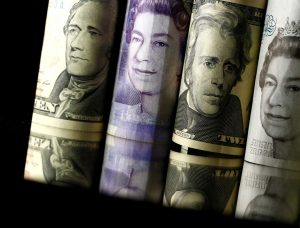BoP surplus balloons to $3.5B in September
THE PHILIPPINES’ balance of payments (BoP) position posted a surplus in September, the widest in nearly four years, the Bangko Sentral ng Pilipinas (BSP) said.

By Luisa Maria Jacinta C. Jocson, Reporter
THE PHILIPPINES’ balance of payments (BoP) position posted a surplus in September, the widest in nearly four years, the Bangko Sentral ng Pilipinas (BSP) said.
Data from the BSP showed the BoP ballooned to a $3.526-billion surplus in September from $88 million in August. It was also a turnaround from the $414-million deficit in the same period a year ago.
The September BoP also marked the biggest monthly surplus in close to four years or since $4.236 billion in December 2020.
“The BoP surplus in September 2024 reflected inflows mainly from the National Government’s (NG) net foreign currency deposits with the BSP and net income from the BSP’s investments abroad,” the central bank said.
The BoP measures the country’s transactions with the rest of the world. A surplus shows that more money entered the Philippines, while a deficit means more funds left.
At its end-September position, the BoP reflected a final gross international reserve (GIR) level of $112.7 billion, higher than $107.9 billion as of end-August.
The dollar reserves were enough to cover 4.5 times the country’s short-term external debt based on residual maturity.
It was also equivalent to 8.1 months’ worth of imports of goods and payments of services and primary income.
An ample level of foreign exchange buffers safeguards an economy from market volatility and is an assurance of the country’s capability to pay debts in the event of an economic downturn.
YEAR TO DATE
Meanwhile, the country’s BoP position registered a $5.117-billion surplus in the January-September period, widening from the $1.736-billion surplus a year earlier.
“Based on preliminary data, this cumulative BoP surplus reflected mainly the narrowing trade in goods deficit alongside the continued net inflows from personal remittances, trade in services, and net foreign borrowings by the NG,” it said.
Latest data from the local statistics authority showed that the trade gap in the January-August period narrowed by 4.35% to $34.3 billion from the $35.86-billion deficit a year ago.
“Furthermore, net foreign direct and portfolio investments contributed to the BoP surplus,” the BSP added.
Separate data from the central bank showed that net inflows of foreign direct investments rose by 7.5% to $5.256 billion in the first seven months from $4.888 billion a year earlier.
Meanwhile, foreign portfolio investments yielded a net inflow of $1.998 billion in the January-August period, surging by 542.9% from the $310.77-billion net inflows a year ago.
Rizal Commercial Banking Corp. Chief Economist Michael L. Ricafort said the BoP surplus ballooned amid the proceeds of the NG’s latest dollar bond offering.
The government raised $2.5 billion from its issuance of triple-tranche US dollar-denominated global bonds at end-August. This marked its second global bond offering this year.
Mr. Ricafort also noted continued growth in remittances and business process outsourcing revenues, among others.
“This partly reflects the record GIR recently that is equivalent to more than 8 months of imports and more than double versus the international standard of three to four months, thereby would fundamentally provide a greater cushion for the peso exchange rate,” he said.
Separate BSP data showed the country’s GIR rose to a record high of $112 billion at end-September amid a surge in foreign currency deposits.
“The current account also contributed to this as exports might have accelerated and imports slowed down due to currency depreciation,” John Paolo R. Rivera, a senior research fellow at the Philippine Institute for Development Studies, said in a Viber message.
In the first half of the year, the country’s current account deficit stood at $7.1 billion, accounting for 3.2% of GDP. The BSP expects the current account deficit to reach $6.8 billion this year, equivalent to 1.5% of GDP.
“Increase in income from foreign investments, remittance inflows, sale of assets may have also contributed to this,” Mr. Rivera added.
Mr. Ricafort said that stronger dollar inflows in the coming months could further support the BoP. He also noted the upcoming holiday season, which would boost remittances and exports.
For 2024, the BSP expects the country’s BoP position to end at a $2.3-billion surplus, equivalent to 0.5% of GDP.
















